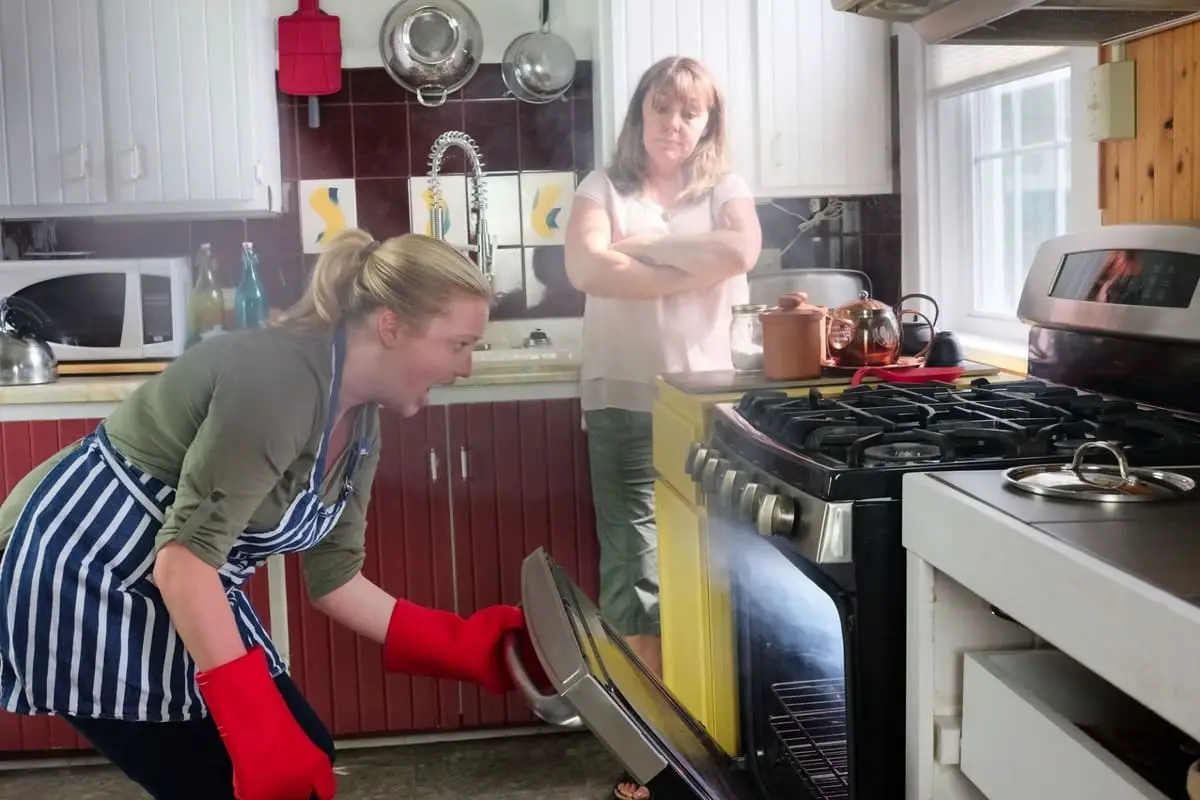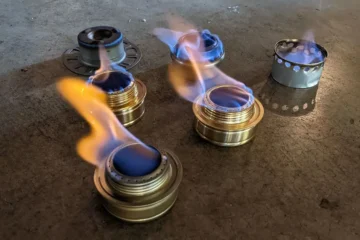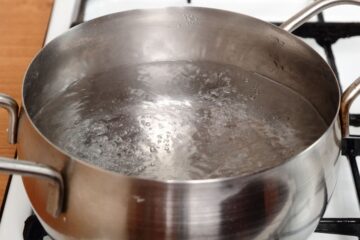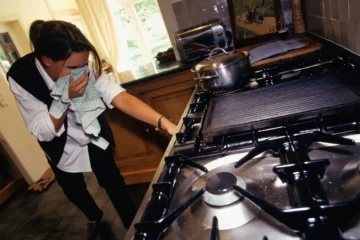Baking is an art that requires precise temperature control. But what happens when you’re using a gas oven and your cakes come out underbaked, or your cookies are burnt to a crisp? Solving problems with gas ovens can be tricky, but it doesn’t have to be.
This guide will give you a comprehensive understanding of how gas ovens work, common problems, and how to solve them. Whether you’re a seasoned baker or just starting, this guide is here to help you achieve the perfect bake every time. Get ready to take your baking game to the next level with this guide to solving problems baking with gas ovens.
Problems That Can Occur While Baking With A Gas Oven.
Baking with a gas oven can be a great way to cook delicious meals and baked goods. However, several issues can arise while baking with a gas oven that can impact the quality of your food. Here we’ll discuss some common problems that can occur while baking with a gas oven, their cause, and some solutions to fix these problems.
Problems Baking With Gas Ovens:
Baking with a gas oven can be a challenge for many people. Some common problems include uneven cooking, temperature fluctuations, and difficulty maintaining the correct temperature. Some other problems that people face include:
- Overbrowning or burning of the food
- Baked goods not rising properly
- Inconsistent cooking
- Undercooking
- Slow cooking times
Causes Of Problems In Baking With Gas Ovens
Several factors contribute to the problems people face when baking with gas ovens. Some of the common causes are:
Poor temperature control
Gas ovens are notorious for their inconsistent temperature control. This can cause uneven cooking and under or over-baking.
Inaccurate thermometer
A thermometer that is not accurate can give false readings, leading to incorrect baking temperatures.
Drafts
Gas ovens are more susceptible to drafts, which can affect the temperature inside the oven.
Dirty or clogged burners
A clogged burner can cause the temperature to fluctuate, leading to inconsistent cooking.
Oven door problems
A loose or damaged door can cause heat to escape from the oven, leading to uneven cooking.
Solutions To Common Problems.
Use a reliable thermometer
An accurate thermometer will help ensure that the oven is set at the correct temperature for baking.
Check for drafts
If drafts are a problem, try moving the oven to a different location or installing a draft guard to keep the heat inside the oven.
Clean burners regularly
Regularly cleaning the burners will help ensure that they are functioning properly, which will, in turn, help maintain a consistent temperature.
Fix oven door problems
If the oven door is loose or damaged, it should be repaired as soon as possible to prevent heat from escaping.
Experiment with different baking methods
Try different baking methods, such as using a convection setting or adjusting the rack placement, to find the best method for your oven.
Preheat the oven
Preheating the oven is essential for achieving the correct temperature. Make sure to give the oven enough time to preheat before starting to bake.
Keep a close eye on the food
Keep an eye on the food while baking to ensure it cooks evenly. If necessary, rotate the pan or adjust the temperature to ensure even cooking.
Tips For Ensuring Successful Baking With A Gas Oven.
Here are some tips for ensuring successful baking with a gas oven:
Calibrate the oven thermometer
Ensure the oven thermometer is calibrated properly to ensure the oven is at the correct temperature.
Preheat the oven
Allow the oven to preheat for at least 10-15 minutes before baking to ensure it reaches the correct temperature.
Place food in the center of the oven
Place the food in the center of the oven to ensure even cooking.
Use heavy-duty baking pans
Heavy-duty baking pans retain heat better and help prevent uneven cooking.
Avoid opening the oven door
Avoid opening the oven door as much as possible to prevent temperature fluctuations.
Rotate the pan
Rotate the pan halfway through the baking process to ensure even cooking.
Avoid overcrowding the oven
Avoid overcrowding the oven as it can cause heat to circulate poorly, leading to uneven cooking.
Use a cooking thermometer
Use a cooking thermometer to check the food’s internal temperature and ensure it is cooked through.
Experiment with different rack positions
Experiment with different rack positions to see which position works best for your oven.
Keep the oven clean
Regularly clean the oven and the racks to prevent any build-up of grease or debris that could affect cooking performance.
Guidelines For Cleaning Your Gas Oven.
- Turn off the oven and let it cool completely before cleaning.
- Remove all cookware, cooking grates, and other removable parts.
- Clean all removable parts with soapy water, rinse, and dry.
- Wipe the oven interior with a damp cloth to remove loose debris.
- For tough grease or food spills, use a non-abrasive cleaner or baking soda and water mixture.
- Avoid using steel wool or harsh chemicals, as they can scratch the surface or damage the oven’s finish.
- Rinse the interior thoroughly with a damp cloth and dry completely.
- Reassemble all removable parts and replace any light bulbs if necessary.
Why Does My Gas Stove Work But Not My Oven?
Problems With Ovens:
There could be several reasons your gas stove is working but your oven is not. Some common issues include:
Thermostat
The thermostat controls the temperature of the oven. If it’s not working correctly, the oven may not heat up.
Ignition System
A gas oven requires an ignition system to light the burners. If the ignition system is faulty, the oven will not heat.
Gas Supply
Ensure the oven’s gas supply is turned on and there is sufficient gas pressure.
Burner or Burner Valves
If the burners or valves are clogged or damaged, they may not be able to supply enough gas to heat the oven.
Safety Valve
The safety valve is responsible for cutting off the gas supply if there is a problem with the oven. If this valve is faulty, the oven may not heat.
Electrical Components
The oven may have electrical components controlling heating and other functions. If these components are damaged, the oven may not work.
Do Gas Ovens Turn On And Off While Cooking?
No, gas ovens do not turn on and off while cooking. They use a continuous gas supply to maintain a consistent temperature, unlike electric ovens that use heating elements that cycle on and off to regulate temperature.
Why Does My Gas Oven Take So Long To Preheat?
Problems With Gas Ovens:
There can be several reasons why your gas oven is taking longer to preheat than expected, including:
Incorrect temperature setting
Double-check that the temperature you’ve set is accurate.
Poor insulation
If your oven is not well-insulated, it may take longer to reach the desired temperature.
Dirty oven
A dirty oven can impede heat transfer and slow down the preheating process.
Broken igniter
If the igniter is broken or worn, it may not generate enough heat to ignite the gas, slowing the preheating process.
Clogged burners
If the burners are clogged, they may need more heat to preheat the oven quickly.
How To Operate Gas Oven For Baking?
To operate a gas oven for baking:
- Preheat the oven to the desired temperature.
- Place the food you want to bake on a baking sheet or in a baking dish.
- Put the food in the oven, ensuring it is centered on the middle rack.
- Set the timer for the recommended baking time.
- Keep an eye on the food as it bakes and adjust the temperature or time if necessary.
- Use oven mitts to remove the food from the oven when it is done.
- Let the food cool as needed before serving.
The Final Words
As you can see, solving problems with gas ovens is actually pretty easy. Once you know the basics and avoid making a few key mistakes. I hope you find this guide helpful in troubleshooting problems with your gas oven.
Frequently Asked Questions
Are Gas Ovens Bad For Baking?
No, gas ovens are not necessarily bad for baking. They can produce consistent and quality baked goods with proper temperature control and maintenance.
What Are The Issues With Gas Ovens?
Gas ovens can have issues with ignition, temperature control, leaks, and incorrect gas pressure. These issues can cause safety hazards and affect the cooking performance of the oven.
Why Does My Gas Oven Take So Long To Bake?
A gas oven takes longer to bake for several reasons, such as an inefficient heating system, poor insulation, and clogged burners. These issues can cause the oven to take longer to reach the desired temperature and result in uneven baking. Regular maintenance and cleaning can improve the performance of your gas oven.
Do Bakers Prefer Gas Or Electric Ovens?
Bakers typically prefer gas ovens over electric ovens due to the better temperature control and consistent heat distribution that gas ovens provide. Gas ovens also have a quick preheating time and the ability to adjust the heat source, allowing for greater baking control. However, many bakers still use electric ovens due to their convenience, lower cost, and consistent heat production.



